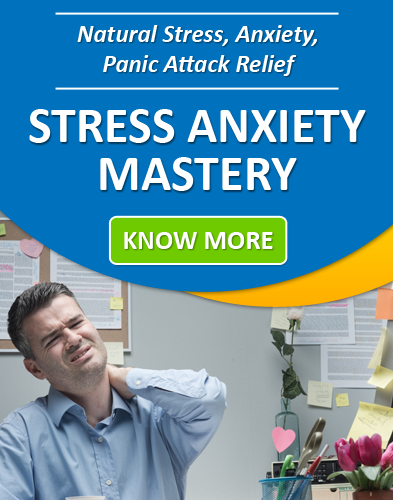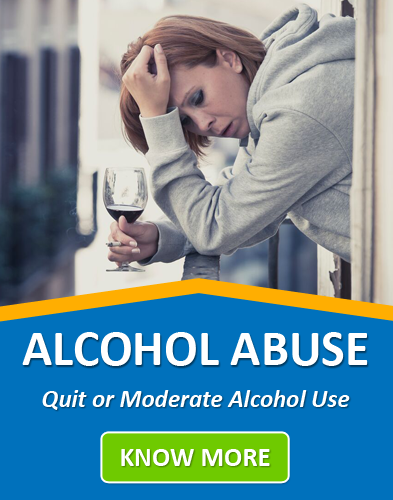 Almost everyone feels stressed during the day. A hectic work schedule, things to do at home, personal problems, and everything else you have to do contribute to your stress level.
Almost everyone feels stressed during the day. A hectic work schedule, things to do at home, personal problems, and everything else you have to do contribute to your stress level.
While there are many things you can do to reduce your stress from day to day, sometimes stress can build up and become chronic. Chronic stress can lead to more serious health risks like anxiety.
This article will discuss what stress is, what anxiety is, and the ways you can deal with them.
What Is Stress?
Stress is defined as any demand that is placed on your mind or body. Most of the time there are many stresses being placed on both the mind and the body and this is when we begin to notice stress.
Stress is not a bad thing. In fact, it is one of the body’s protection mechanisms. Stress lets us know that something is wrong and our body and brain don’t like what is happening.
Having stress when you are studying for a test, or before a job interview means that your body is preparing for a change. The body and mind don’t like change! However, once the small amount of stress and change are over, your life is back to normal and the body adapts.
The harmful part of stress comes if it becomes pervasive. Having a constant stress on your body and mind is very harmful. Prolonged stress is also called chronic stress and chronic stress can lead to anxiety.
What Is Anxiety?
Anxiety is a feeling of fear, or worry, or general uneasiness in your daily life. It usually means that you have some issues that need to be resolved, problems at work or at home, or an upcoming event that you want to be done with. While these anxieties are normal, there are some types that are more severe.
Severe anxiety can be categorized into several groups:
- Generalized Anxiety Disorder (GAD) – This type refers to people who generally expect the outcome of whatever is going to happen in their life, will go wrong. They have a fear that whatever they do is not going to go the way they expect it to.
- Phobias – This is a common form of anxiety. It means the fear of a specific object or situation. Even if the fear is irrational, the anxiety that comes with it is real.
- Panic Attacks – These come about after prolonged periods of stress, but can also happen instantly. They are accompanied by shaking, nausea, confusion, and breathing difficulty.
- Obsessive Compulsive Disorder (OCD) – This anxiety disorder means that people feel the need to do something that is repetitive, intrusive, and distressing in order to feel normal. People feel the need to do things repetitively in order to feel less stressed, but unfortunately, the anxiety repeats itself.
- Post Traumatic Stress Disorder (PTSD) – People who have been involved in a very serious, life-changing event can often develop the anxiety disorder called PTSD. It is commonly associated with people who have been in war situations, have been raped, or been in serious accidents.
How Are Stress and Anxiety Connected
Anxiety is the aftermath of too much stress. Having a regular amount of stress in your life is good. It keeps you on your toes. It makes you study harder for that test. It makes you prepare better for that job interview. It keeps you going.
However, when you have too much stress there can be health risks. Some of these risks are in the form of the anxieties previously listed. If left untreated, these anxieties can take over a person’s mind and body.
How To Keep Stress Under Control
Having prolonged stress can lead to anxiety, but there are many ways to counteract everyday stress. Getting stressed for a wedding, a test, or an interview is normal because that stress will go away after the event occurs. The problems arise when everyday stress builds up over time and leads to anxiety.
Here are some simple tricks to keeping yourself healthy and stress free:
- Exercise – Even something as simple as walking for 20 minutes can energize the body and mind to relieve stress.
- Eat Healthy – Snacking on foods that are not good for you will only stress you out more because you will feel bad about yourself. Bananas, green tea, and vegetables are the best bet!
- Relax – Have some time in your day to just be with yourself. Resting with a good book or a movie will do wonders to de-stress yourself.
- Sleep – Once you have found some ways to relax, the best way to relieve the rest of your stress is to get a good sleep. By using these methods to keep your stress under control you will be able to sleep well and have less anxiety!
Having prolonged stress can lead to anxiety and other health problems. Stress related anxiety problems are becoming more prevalent in today’s world. Everyone has longer hours at work and at home, bills to pay, and families to take care of. Taking a little bit of time every day to de-stress yourself will lead to a longer and anxiety free life!







